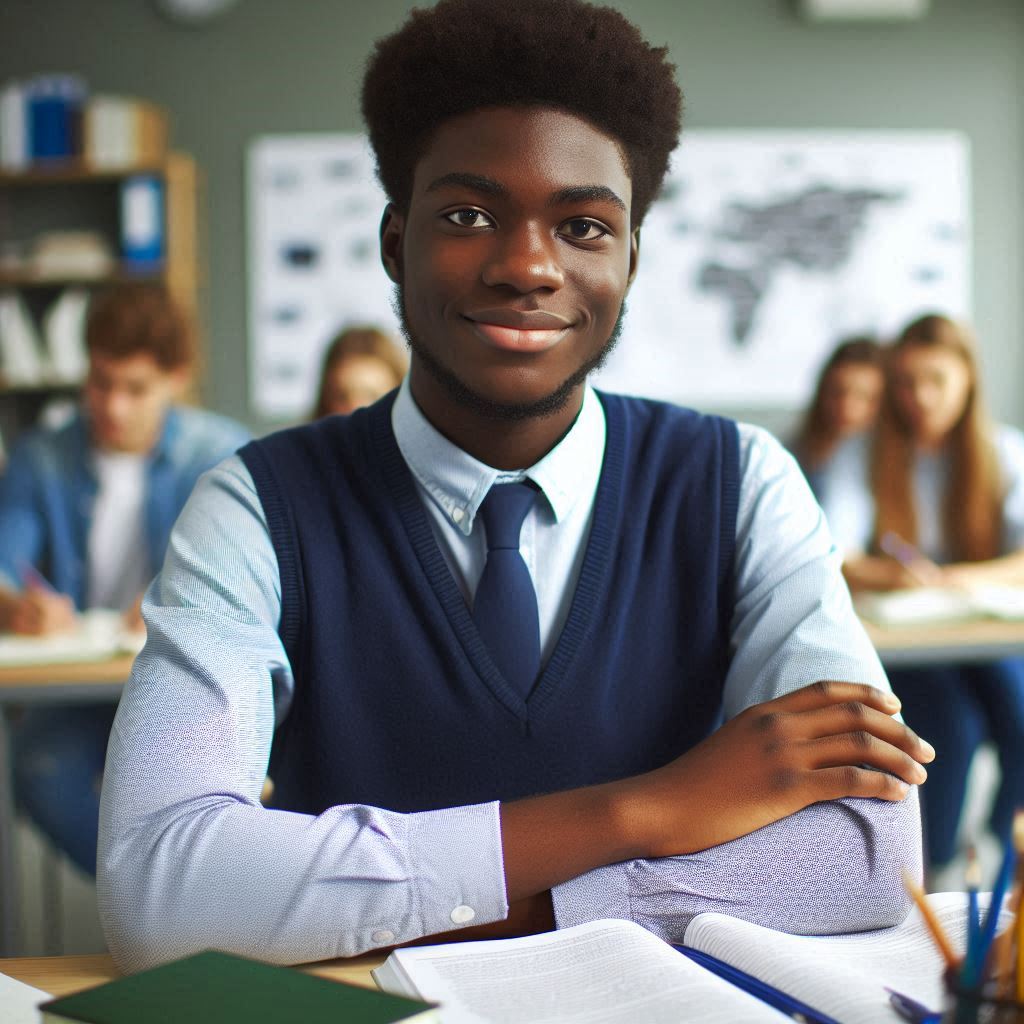Introduction
Physical education involves active learning, promoting physical fitness, and teaching skills for lifelong health.
Health literacy is the ability to obtain, understand, and apply health information. Both are crucial for a nation’s well-being.
In Nigeria, physical education and health literacy play pivotal roles in addressing public health challenges.
However, the current state of wellness education and fitness awareness in Nigeria is concerning.
Limited access to quality physical education programs and inadequate health literacy contribute to the nation’s health disparities.
Despite these challenges, there’s growing recognition of the importance of physical education and health literacy in Nigeria.
Efforts are underway to improve physical education curricula and promote health literacy initiatives.
Enhancing physical education and health literacy will empower Nigerians to make informed health decisions, leading to healthier lifestyles and reduced healthcare costs.
History of physical education in Nigeria
Overview of the history of physical education in Nigeria
Physical education in Nigeria has a long history, dating back to the pre-colonial era.
During this time, traditional forms of physical activities such as wrestling, hunting, and dancing were an integral part of the culture.
With the arrival of colonial masters, the concept of physical education began to evolve.
The British introduced Western sports such as soccer, cricket, and athletics to the Nigerian society, which influenced the physical education landscape.
Evolution of Physical Education Curriculum in Nigerian Schools
Over the years, the physical education curriculum in Nigerian schools has undergone significant changes.
In the early years, physical education was mainly focused on sports and games, with limited attention given to health and fitness.
However, as awareness about the importance of health and fitness increased, the curriculum was revised to include a more holistic approach.
Today, physical education in Nigerian schools encompasses not only sports and games but also health literacy, nutrition, and overall well-being.
Challenges Faced in Promoting Physical Education in Nigeria
Despite the importance of physical education, there are several challenges faced in promoting it in Nigeria.
One major challenge is the lack of funding and resources for physical education programs in schools.
Additionally, there is a shortage of qualified physical education teachers in Nigeria, leading to a lack of proper instruction and guidance for students.
This has resulted in a decline in interest and participation in physical education activities.
Furthermore, the emphasis on academic performance in Nigerian schools often takes precedence over physical education, leading to neglect of this critical aspect of education.
Without proper support and investment, the promotion of physical education in Nigeria will continue to face obstacles.
Read: Health Education Initiatives in Nigerian Communities
Current state of physical education in Nigerian schools
Examination of the current physical education curriculum in Nigerian schools
Physical education in Nigerian schools is an essential component of the educational system.
The current curriculum focuses on a mix of theoretical knowledge and practical skills related to physical activities and sports.
Students are expected to participate in various sports and exercises to improve their physical health and overall well-being.
Availability of resources and facilities for physical education in schools
One of the challenges facing physical education in Nigerian schools is the limited availability of resources and facilities.
Many schools lack proper sports equipment, fields, and qualified instructors.
This hinders the overall effectiveness of physical education programs and limits the opportunities for students to engage in physical activities.
Role of teachers in Promoting Physical education and health Literacy
Teachers play a crucial role in promoting physical education and health literacy in Nigerian schools.
They are responsible for designing and implementing physical education programs, guiding students in various physical activities, and educating them on the importance of leading a healthy lifestyle.
Teachers also serve as role models for students, encouraging them to participate in sports and maintain active lifestyles.
Teachers can collaborate with other educational stakeholders, such as parents and community members, to create a supportive environment for physical education and health literacy.
By working together, they can address the challenges of limited resources and facilities, and ensure that students receive a well-rounded education that includes physical fitness and health awareness.
In fact, the current state of physical education in Nigerian schools presents both challenges and opportunities for improvement.
By examining the curriculum, addressing resource limitations, and empowering teachers to promote physical education and health literacy, we can create a more robust and effective physical education system that benefits all students.
Read: Physical Education Leadership Training Programs
Initiatives promoting physical education and health literacy in Nigeria
Overview of Initiatives Promoting Wellness Education and Fitness Awareness in Nigeria
In Nigeria, there has been a growing recognition of the importance of physical education and health literacy in promoting overall well-being.
Both government and non-governmental organizations have been implementing various initiatives to encourage active lifestyles and educate the population on the benefits of physical activity.
Government Initiatives
- Implementation of physical education curriculum in schools
- Allocation of resources for sports facilities and equipment
- Training programs for physical education teachers
- Policies promoting physical activity in communities
The Nigerian government has taken significant steps to integrate physical education into the school curriculum, ensuring that students receive proper instruction on the importance of staying active.
Transform Your Career with Expert Guidance
Get personalized mentorship consulting that’s tailored to your unique path. Our expert advice is actionable and exclusive.
Get StartedAdditionally, they have allocated funds for the development of sports facilities and equipment to support physical education programs in schools.
Non-Governmental Initiatives
- Community-based health and fitness programs
- Awareness campaigns on the benefits of physical activity
- Sponsorship of sports events and competitions
- Partnerships with schools to promote health literacy
Non-governmental organizations play a crucial role in promoting physical education and health literacy in Nigeria.
They often work at the grassroots level, engaging communities in health and fitness programs to raise awareness about the importance of staying active.
These organizations also collaborate with schools to supplement existing physical education curricula.
Success Stories of Programs Promoting Wellness Education and Fitness Awareness
- The Healthy Kids Initiative: A program targeting school-aged children to promote physical activity and healthy eating habits.
- The Fit Families Program: A community-based initiative that encourages families to engage in physical activities together.
- Sport for Development: An organization that uses sports as a tool for social change, promoting physical literacy and health education among youth.
- The Walk for Life Campaign: A national campaign that encourages people of all ages to incorporate walking into their daily routine to improve overall health.
These success stories highlight the positive impact of programs that promote physical education and health literacy in Nigeria.
By engaging both children and adults in activities that promote physical well-being, these initiatives contribute to a healthier population and a more active society.
Collaboration Between Schools, Communities, and Organizations in Promoting Physical Education
Effective collaboration between schools, communities, and organizations is key to promoting physical education and health literacy in Nigeria.
Schools play a central role in educating students about the importance of physical activity, while communities provide support for health and fitness programs.
Organizations, both government and non-governmental, contribute resources and expertise to enhance existing initiatives and reach a wider audience.
By working together, these stakeholders can create a comprehensive approach to promoting physical education and health literacy that benefits the entire population.
Through collective efforts and shared resources, Nigeria can continue to make progress in improving the health and well-being of its citizens.
Read: Physical Education and Environmental Awareness

Explore Further: Impact of Technical Education on Nigerian Economy
Discover More: Teacher Training for Inclusive Education
Challenges and barriers to promoting physical education and health literacy in Nigeria
When it comes to promoting physical education and health literacy in Nigeria, there are several challenges and barriers that hinder progress in this area.
These issues need to be addressed in order to improve the overall health and well-being of the Nigerian population.
Lack of funding for physical education programs
One of the major obstacles to promoting physical education in Nigeria is the lack of adequate funding for programs.
Without proper financial support, schools are unable to provide necessary resources and equipment for physical education classes.
This leads to a limited curriculum and poor quality physical education instruction.
In order to overcome this challenge, the government and other stakeholders need to prioritize funding for physical education programs in schools.
This may involve allocating more resources to schools, providing grants for equipment and training, and implementing policies that support physical education initiatives.
Limited trained educators in physical education
Another barrier to promoting physical education in Nigeria is the shortage of trained educators in this field.
Many teachers lack the necessary qualifications and experience to effectively teach physical education classes.
This results in a lack of quality instruction and limited opportunities for students to participate in physical activity.
To address this issue, it is essential to invest in the training and development of physical education teachers.
This may involve offering professional development programs, providing incentives for educators to pursue advanced degrees in physical education, and recruiting qualified instructors to teach in schools.
Cultural barriers to physical activity and health literacy in Nigeria
Additionally, there are cultural barriers that inhibit physical activity and health literacy in Nigeria.
Some communities may prioritize academic achievement over physical fitness, leading to a lack of emphasis on physical education in schools.
There may also be cultural beliefs that discourage certain types of physical activity or promote unhealthy behaviors.
To combat these cultural barriers, education and awareness campaigns should be implemented to promote the importance of physical activity and health literacy in Nigerian society.
This may include community programs, media campaigns, and partnerships with local organizations to raise awareness and change attitudes towards physical education.
Overall, addressing these challenges and barriers to promoting physical education and health literacy in Nigeria is crucial for improving the health and well-being of the population.
By investing in funding, training educators, and addressing cultural barriers, Nigeria can create a more active and health-conscious society.
Read: Health Education Workshops for Nigerian Educators
Gain More Insights: How to Apply for Auto Tech Programs in Nigeria
Recommendations for improving physical education and health literacy in Nigeria
When it comes to improving physical education and health literacy in Nigeria, there are several key recommendations that can make a significant impact.
These recommendations are essential for enhancing the overall health and well-being of the Nigerian population.
Increase Government Funding for Physical Education Programs
One of the most important recommendations for improving physical education and health literacy in Nigeria is to increase government funding for physical education programs.
By investing more resources into physical education, the government can ensure that schools have access to the necessary equipment and facilities to provide high-quality physical education classes.
Increased funding can also help to attract and retain qualified physical education teachers, who play a critical role in promoting health literacy among students.
Provide Professional Development Opportunities for Physical Education Teachers
Another key recommendation is to provide professional development opportunities for physical education teachers in Nigeria.
By offering training and support for teachers, the government can help to ensure that they have the knowledge and skills necessary to effectively promote health literacy and physical activity among students.
Professional development can also help teachers stay up-to-date on the latest research and best practices in physical education, allowing them to deliver high-quality instruction.
Engage Communities and Local Organizations in Promoting Wellness Education and Fitness Awareness
One effective way to improve physical education and health literacy in Nigeria is to engage communities and local organizations in the promotion of these important initiatives.
By partnering with community groups, schools can create opportunities for students to participate in physical activities outside of the classroom, such as sports leagues and fitness programs.
Local organizations can also play a key role in raising awareness about the importance of physical education and health literacy, helping to create a culture of health and wellness in Nigerian communities.
Overall, these recommendations are essential for enhancing physical education and health literacy in Nigeria.
By increasing government funding, providing professional development opportunities for teachers, and engaging communities and local organizations, Nigeria can take significant steps towards improving the overall health and well-being of its population.
Explore Further: Community Involvement in Biology Education
Uncover the Details: Introduction to Animal Husbandry in Nigerian Education
Conclusion
As we conclude, it is imperative to recap the key points discussed in this blog post.
Wellness Education and Fitness Awareness play a vital role in shaping the well-being of individuals in Nigeria.
Emphasizing the importance of physical education and health literacy in Nigeria cannot be overstated.
These elements not only promote physical well-being but also contribute to the overall development of individuals.
We call upon all stakeholders, including government agencies, schools, health professionals, and the community, to work together in promoting physical education and health literacy in Nigeria.
By collaborating and prioritizing these aspects, we can ensure a healthier and more active population for the future.




